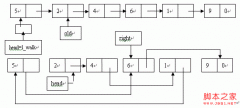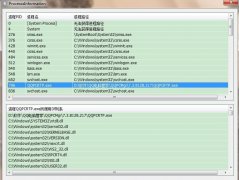C++对象的拷贝与赋值操作
我发现一些同事在编写一个类时,知道什么时候需要实现拷贝构造函数和赋值操作,但不知道什么时候拷贝构造函数被调用,什么时候赋值操作被调用,甚至把二者混为一谈。
要弄明白这个问题,最简单的做法莫过于写个测试程序试一下。不过那样做也未必是好办法,实验的结果往往导致以偏概全的结论。不如好好想一下,弄清楚其中的原理,再去写程序去验证也不迟。
拷贝构造函数,顾名思义,等于拷贝+ 构造。它肩负着创建新对象的任务,同时还要负责把另外一个对象拷贝过来。比如下面的情况就调用拷贝构造函数:
CString str = strOther;
赋值操作则只含有拷贝的意思,也就是说对象必须已经存在。比如下面的情况会调用赋值操作。
str = strOther;
不过有的对象是隐式的,由编译器产生的代码创建,比如函数以传值的方式传递一个对象时。由于看不见相关代码,所以不太轻易明白。不过我们稍微思考一下,就会想到,既然是根据一个存在的对象拷贝生成新的对象,自然是调用拷贝构造函数了。
两者实现时有什么差别呢?我想有人会说,没有差别。呵,假如没有差别,那么只要实现其中一个就行了,何必要两者都实现呢?不绕圈子了,它们的差别是:
拷贝构造函数对同一个对象来说只会调用一次,而且是在对象构造时调用。此时对象本身还没有构造,无需要去释放自己的一些资源。而赋值操作可能会调用多次,你在拷贝之前要释放自己的一些资源,否则会造成资源泄露。
明白了这些道理之后,我们不防写个测试程序来验证一下我们的想法:
#include <stdio.h>
#include <STDLIB.H>
#include <string.h>
classCString
{
public:
CString();
CString(constchar* pszBuffer);
~CString();
CString(constCString& other);
constCString& operator=(constCString& other);
private:
char* m_pszBuffer;;
};
CString::CString()
{
printf("CString::CString
");
m_pszBuffer= NULL;
return;
}
CString::CString(constchar* pszBuffer)
{
printf("CString::CString(const char* pszBuffer)
");
m_pszBuffer= pszBuffer!= NULL? strdup(pszBuffer) : NULL;
return;
}
CString::~CString()
{
printf("%s
", __func__);
deletem_pszBuffer;
m_pszBuffer= NULL;
return;
}
CString::CString(constCString& other)
{
if(this== &other)
{
return;
}
printf("CString::CString(const CString& other)
");
m_pszBuffer= other.m_pszBuffer!= NULL? strdup(other.m_pszBuffer) : NULL;
}
constCString& CString::operator=(constCString& other)
{
printf("const CString& CString::operator=(const CString& other)
");
if(this== &other)
{
return*this;
}
if(m_pszBuffer!= NULL)
{
free(m_pszBuffer);
m_pszBuffer= NULL;
}
m_pszBuffer= other.m_pszBuffer!= NULL? strdup(other.m_pszBuffer) : NULL;
return*this;
}
voidtest(CStringstr)
{
CStringstr1= str;
return;
}
intmain(intargc, char* argv[])
{
CStringstr;
CStringstr1= "test";
CStringstr2= str1;
str1= str;
CStringstr3= str3;
test(str);
return0;
}
原文地址:http://dev.csdn.net/author/absurd/082775af05e44a4db1e9cdb4977687b2.Html





